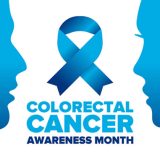

Because it has been the leading cause of death in the United States for the past 80 years, heart disease is largely responsible for the increasingly recognized preventative medicine movement. Since it can lower total cholesterol, healthful eating practices are part of this preventative approach. Although many assume high cholesterol to be the enemy of heart health, the actual cardiovascular disease risk occurs when cholesterol is attacked. New research shows that a popular herb commonly used for liver ailments can prevent this phenomenon by keeping the cholesterol in your body safe from injury.
Understanding Cholesterol
Cholesterol in and of itself is created and used by our bodies to maintain health. A soft, waxy substance found in the bloodstream and cells, cholesterol is needed for many daily functions; including manufacturing cell membranes and hormones.
When physicians advise lowering your cholesterol, they are likely referring to your bad cholesterol; otherwise known as low density lipoproteins (LDL). The reason cholesterol levels are so carefully monitored is because excessive amounts of LDL increase a person’s risk for coronary artery disease, heart attacks and stroke. However, experts believe this is because of the greater quantity of cholesterol that can potentially be oxidized (attacked).
Cholesterol Oxidation
Oxidation occurs when oxygen or disease breaks down a substance excessively creating free radicals. As negatively charged electrons no longer attached to their atoms, free radicals create a chemical instability. An unstable free radical seeks other atoms or molecules to bond with, resulting in a tissue damaging chemical reaction.
Unfortunately, the cardiovascular system is highly susceptible to free radical attack. Oxidized cholesterol poses a real danger to the heart, because it enables the cholesterol to become sticky; which irritates the arterial walls, initiates plaque build-up and subsequently blocks blood flow. Because the lining of our blood vessels only have receptors for cholesterol that is oxidized, this damaged form of cholesterol is responsible for the creation of plaques.
Oxidation Prevention
While traditional health advocates have focused their attention on restricting cholesterol intake, modern healthcare professionals are promoting ways to prevent cholesterol from oxidizing. Foods known to accelerate cholesterol oxidation include:
- High-fructose corn syrup
- Soft drinks
- Fortified white flour
- Egg powders
- Caffeine
- Imitation broths
- Corn, soy and safflower oil
- Margarine and shortening
- Hydrogenated fats
In addition to reducing your intake of these foods, antioxidants help prevent cholesterol oxidation. Found in many foods, vitamins and herbs, antioxidants reduce, neutralize and prevent the damage inflicted by free radicals.
Milk Thistle
While strengthening your diet with lots of antioxidant-filled morsels provides a modicum of insurance against cardiovascular disease, research shows that the herb milk thistle goes above and beyond the call of preventing cholesterol oxidation.
At the University of Arkansas, Sunny Wallace and co-workers found that extract of milk thistle, a potent antioxidant, protected LDL cholesterol from oxidizing. The investigators found that one of milk thistle’s most active constituents, silybin (or silibinin) was capable of reducing the oxidation of LDL cholesterol by up to 86 percent.
Because the oxidation of LDL cholesterol is suspected to play a major role in the development of atherosclerosis and heart disease, these results have enormous implications. Referring to milk thistle, Wallace said “Thus, it is possible that the extract prepared from the fruits of an easily accessible plant could be useful to prevent the progression of atherosclerotic events.”
Although decades of research is typically required for medical professionals to make any claims about an herb’s use, those wishing to keep their cardiovascular systems healthy can profit from this study’s conclusion. In addition to avoiding the unhealthy foods that promote cholesterol oxidation, taking a silybin supplement may offer the best heart disease prevention; by keeping blood vessels free and clear of atherosclerotic plaques.




